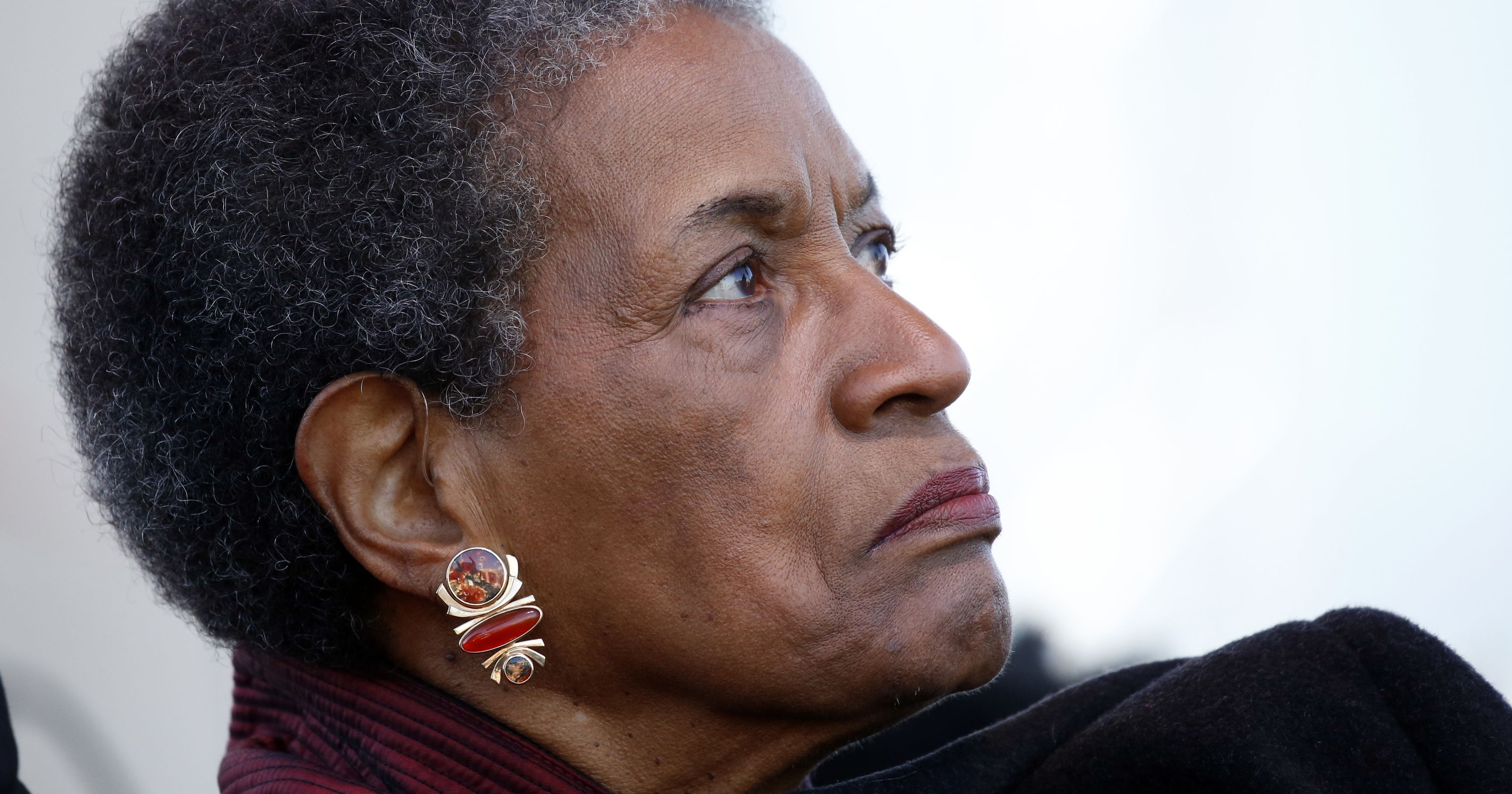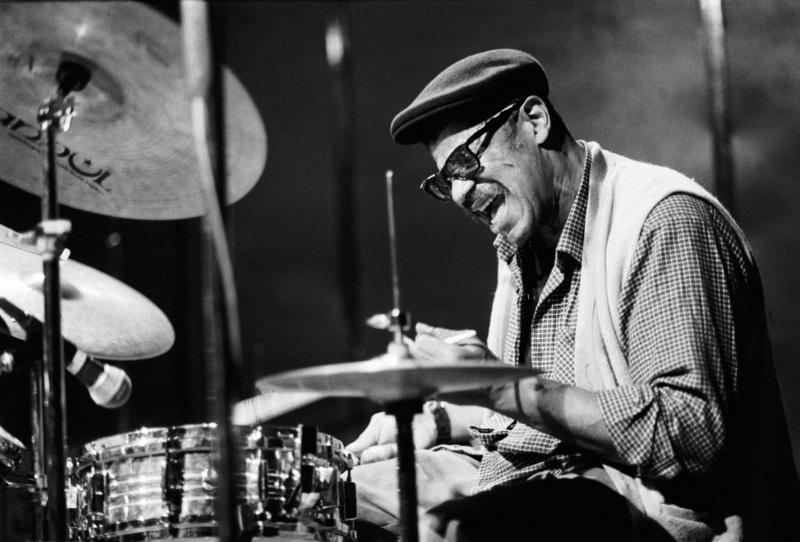
Across the street from where police once held civil rights protesters behind barbed wire, President Donald Trump glimpsed photographs and artifacts that documented the heartbreak, determination and courage of those involved in Mississippi’s civil rights movement.
Trump attended Saturday’s opening of the Museum of Mississippi History and the Mississippi Civil Rights Museum, which are part of the state’s 200th birthday.
After his brief tours of the two, Trump came to an auditorium filled with hundreds of elected officials, special guests and a handful of veterans of the civil rights movement.
More: Reserved Trump praises ‘true American heroes’ at Mississippi Civil Rights Museum
Many of those veterans, including U.S. Reps. John Lewis and Bennie Thompson, stayed away from the ceremony because of Trump.
Ed King, one of the founders of the Mississippi Freedom Democratic Party, said he came because he believes in communication.
In his speech, Trump praised Medgar Evers, the Mississippi NAACP field secretary who “investigated grave injustices” and “loved his family and his country … He believed we should treat every citizen as an equal child of God.”
Four days after his June 12, 1963, assassination, Evers was laid to rest in Arlington National Cemetery with full military honors, Trump said. “The headstones do not reflect the color of their skin but the courage of their deeds.”
He called Evers “a great American hero” and praised Evers’ brother Charles, Ed King and Myrlie Evers-Williams, who were all in attendance in the small auditorium.
Later, the widow of Medgar Evers spoke to the thousands assembled outside and recounted what it was like seeing the photographs from the civil rights museum: “I wept because I felt the blows, I felt the bullets, I felt the tears, I heard the cries, but I also sensed the hope in those children.”
Joan Trumpauer Mulholland, a Freedom Rider who was arrested and sent to Parchman prison in 1961, called the new civil rights museum “amazing. Never did I dream that I would see a Mississippi Civil Rights Museum.”
Minnijean Brown Trickey, one of the Little Rock Nine, said the museum tells the truth “that needed to be told. And it’s well done.”
Mike Espy, who in 1987 became the first black Mississippian elected to Congress since Reconstruction, called the museum “an unvarnished portrayal of what happened years ago. Everyone should see it, regardless of race and age. Many will be impressed, but all will be affected.”
National NAACP President and CEO Derrick Johnson, who opted not to attend the museum’s opening because of Trump, said he appreciates the care taken “to tell the accurate story. To tell the whole story would take two more buildings.”
Vernon Dahmer Sr. died defending his family from a nighttime attack by the Ku Klux Klan on Jan. 10, 1966.
Inside the civil rights museum, Trump viewed a photograph of the four Dahmer sons, all in the armed forces at the time, returning home to find their family home burned to the ground.
The Dahmer family skipped Trump’s speech but attended the opening ceremonies.
Dahmer’s son Dennis, who was 12 when the Klansmen attacked the family, talked about the words spoken Saturday by politicians and others.
“It’s not just the words, it’s the meaning behind the words that are important,” he said. “It’s the actions that come behind the words that are really important.”
He praised the museum. “It’s a great day for Mississippi,” he said. “I never thought I’d see a museum have what I consider a factual telling of the story of the civil rights movement in the state of Mississippi.”
The words that puzzled some civil rights veterans came from U.S. Sen. Roger Wicker, who praised Jefferson Davis for his work in preserving the U.S. Capitol. Wicker, however, made no mention of the Confederacy or the Civil War.
Saturday’s event took place across the street from the State Fairgrounds, where hundreds of those involved in the civil rights struggle in 1963 were held behind barbed wire.
Overall, nearly 1,000 were arrested in those protests, which included sit-ins, picketing and boycotting of stores in downtown Jackson.
On June 1, 1963, Jackson police arrested Medgar Evers and national NAACP leader Roy Wilkins for picketing.
When Wilkins witnessed the mistreatment at the fairgrounds, he compared what police were doing to Nazi concentration camps. “The only thing missing is the ovens,” he said.
Eleven days later, an assassin killed Evers just hours after President John F. Kennedy announced that the nation faced “a moral crisis” hanging on the question of “whether we are going to treat our fellow Americans as we want to be treated.”
Mississippi native Dorie Ladner, who was mentored by Evers, was among the activists locked up at the fairgrounds.
So was Ed King. He said the police tortured him and others there.
On June 16, 1963, many of the 5,000 who attended Medgar Evers’ funeral began to march, including Wilkins and Martin Luther King Jr.
And when they tried to march downtown to the state Capitol, Jackson police stopped them and “brought the dogs out,” Ladner said.
She was arrested and initially taken to the fairgrounds, where she saw photographer Ernest Withers had been beaten and was “bleeding profusely,” she recalled.
Because she hid a roll of film for Withers, she was taken to the local jail, where she spent the night.
The next day, Justice Department official John Doar got them out of jail.
“It was a horrible situation, but it was worth it because we had to say something, we had to speak up,” Ladner said. “You have to bear witness to these incidents.”
Contact Jerry Mitchell at 601-961-7064 or jmitchell@gannett.com. Follow him on Facebook and Twitter.









